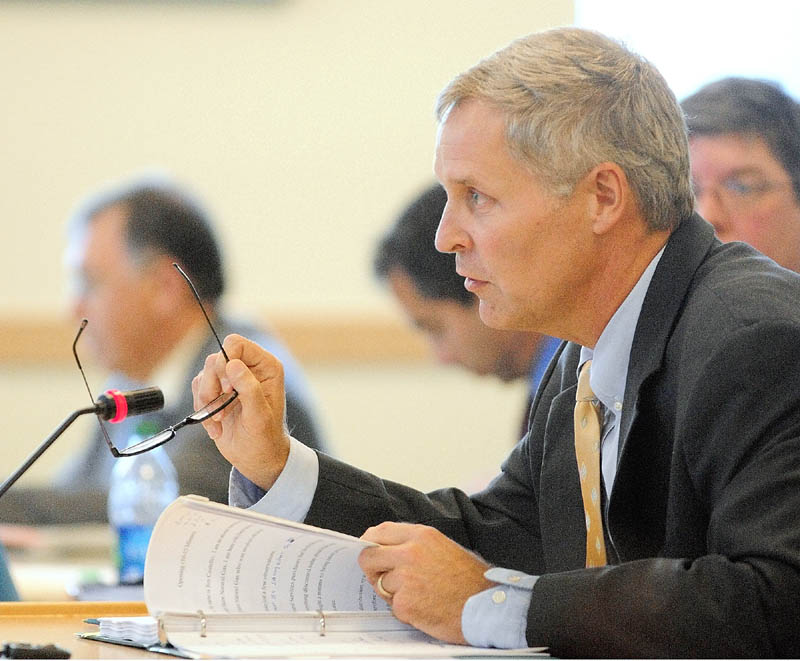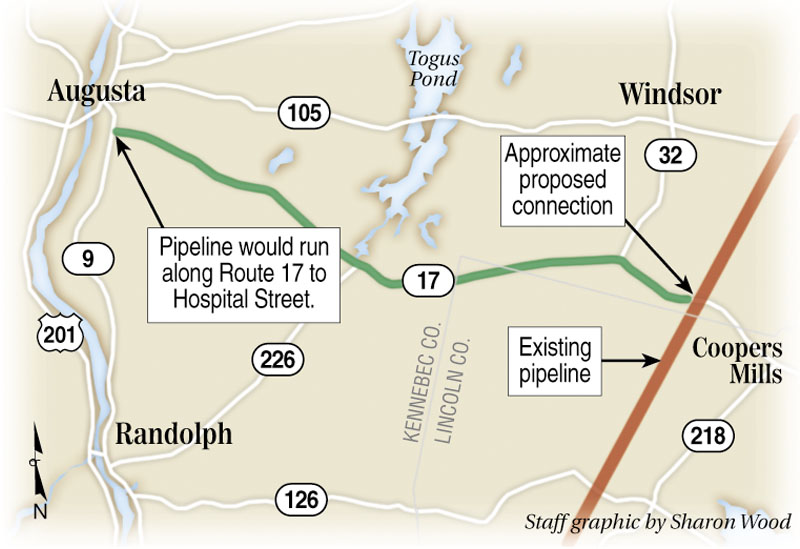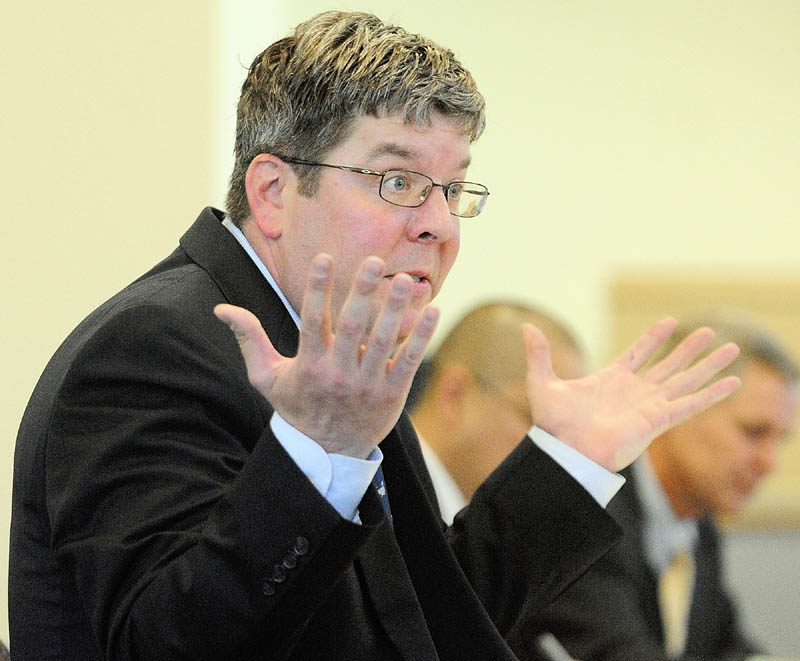AUGUSTA — One plan to build a natural gas pipeline in the area estimated it would create 46 jobs with a $19.3 million investment.
A competing plan calculated $150 million in investment and 435 jobs.
The state made a mistake when it gave a higher score for job creation and economic development to the smaller plan, and ultimately awarded the project bid to that firm, attorneys representing the rival company argued Tuesday.
A special review panel took the testimony during a day-long appeals hearing, as Summit Natural Gas sought to overturn the state’s selection of Maine Natural Gas as the winner bidder to build the pipeline system in central Maine.
“The state made it clear this is a project where economic development matters, and it would give points to the best economic development impact, and decided to measure that by the number of jobs it is going to create,” said Charles Dingman, an attorney representing Kennebec Valley Gas Co., which is in the process of being acquired by Summit. “However, in scoring these bids, for reasons we still don’t understand, the state gave Maine Natural Gas five points for its 50-odd jobs, and gave Summit four points for its 700-odd jobs.”
The 700 jobs figure referred to by Dingman included both direct and indirect job estimates provided by Summit.
Attorneys for Summit argued the state’s review process was ambiguous and flawed on multiple fronts, the bids should be thrown out and the project re-bid with a more clearly written request for proposals. Maine Natural Gas attorneys, meanwhile, said their firm provided what the state asked for in its request for proposals, at a lower price, and rightly won the job.
Alan Henry, director of special projects for the state Bureau of General Services, who oversaw the bidding process, said the two projects were reviewed by a state panel based on how they each met the request for proposals. The proposals weren’t compared to each other directly by the evaluators, other than in the cost of each project, he said.
Summit’s bid lost out to Maine Natural Gas’ by a narrow margin, 94 points to 92.09 points.
Maine Natural Gas officials said they won the bid in a fair, if imperfect, process. But attorney James Costello, representing Maine Natural Gas, said the appeals case is not about whose project created more jobs, but whether there were irregularities in the state’s bid scoring process.
He said if Summit officials didn’t understand the scope of the project they were bidding on, they should have asked the state to clarify. The state’s request for proposals asked bidders to provide a pipeline to state facilities in Augusta, with the capacity for future expansion to much of the rest of the Kennebec Valley.
“That’s what they were asking for, and that’s what we bid,” Costello said. “If you’re going to put in a proposal that different (as Summit’s), you’ve got to pick up the phone and ask, ‘Is this what you really want?’ They didn’t do that. We think we put in a good bid and it turned out it was the best bid — it won.”
Ken Young, executive director of the Kennebec Valley Coucil of Governments, which worked to secure tax breaks for the project Summit is now proposing, told the panel that the region could miss out on a larger economic development opportunity if the project is not re-bid.
Maine Natural Gas has said it would only expand a gas pipeline beyond the Augusta area if there were enough customer demand, whereas Summit has floated plans to expand the line north through a dozen communities, up to Madison.
Greg Im, a state assistant attorney general representing the state Bureau of General Services, said the state’s request for proposals only asked bidders to provide a pipeline to state property in Augusta with the capacity to be expanded to residential, governmental and business users in much of the rest of the Kennebec Valley in the future.
“Summit is free to provide more than what was requested, but a bigger project doesn’t provide a better score,” he said.
Job creation scoring was not the only area where Summit officials say the state’s review process was flawed. They argued the state request for proposals asked for cost estimates from each bidder but then used its own calculations of per unit cost instead.
Summit attorneys also said the state was too ambiguous about what was required, and asked for the proposed pipeline to connect to state property in Gardiner but didn’t reject or penalize Maine Natural Gas’ proposal, which did not include plans to connect to state property in Gardiner.
Henry suggested state evaluators had concerns about the methodology used by Summit to determine the number of jobs its project would provide, stating they appeared to have used a formula that tended to result in high estimates. Summit also used a University of Southern Maine professor’s study of the jobs created in an electrical project that contained a disclaimer saying it does not apply the same to natural gas projects, Henry said.
Summit officials argued they only used the study in question to determine the number of indirect jobs, and the estimated 435 direct jobs to be created during project construction was based on the company’s experience in the industry.
Tuesday’s hearing was initially scheduled to last two days, but concluded at the end of the day. Both sides have until Aug. 24 to submit final written closing statements, according to presiding officer of the appeals panel, William Laubenstein II.
The panel would then issue a decision after that deadline.
Send questions/comments to the editors.






Success. Please wait for the page to reload. If the page does not reload within 5 seconds, please refresh the page.
Enter your email and password to access comments.
Hi, to comment on stories you must . This profile is in addition to your subscription and website login.
Already have a commenting profile? .
Invalid username/password.
Please check your email to confirm and complete your registration.
Only subscribers are eligible to post comments. Please subscribe or login first for digital access. Here’s why.
Use the form below to reset your password. When you've submitted your account email, we will send an email with a reset code.